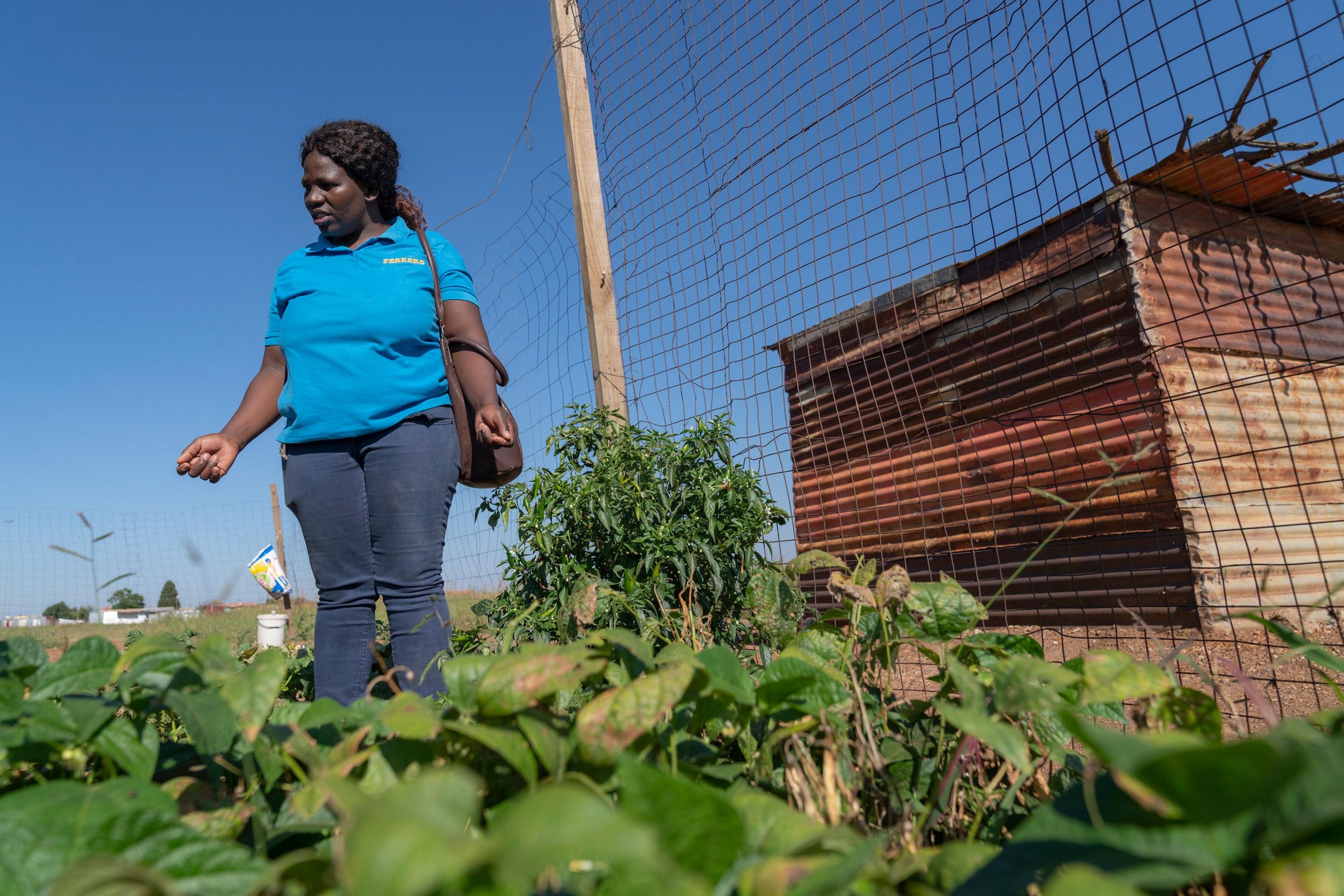Ferrero’s zero hours workers continue CCMA fight
As resistance against zero hours contracts at the chocolate confectionery continues at the CCMA, allegations have emerged that the company is using those contracts to discipline workers.
Author:
11 March 2020

At the centre of the Moscow shack settlement in Evaton West, crammed between the N1 and the Golden Highway in the south of Gauteng, there is a football pitch. On either edge of that pitch are two shacks that could not look more different.
One belongs to Itani Mokete. It is painted a deep blue with a solid, red-concrete foundation. Inside are a gas stove for cooking and a coal stove for warmth, a fridge and a lounge suite surrounding a television set. The other belongs to Thembisa Sigxakuma, who has lived in Moscow for one month. It is mostly empty inside. On the outside, it still glimmers with the heat of new zinc.

The relationship between these two mismatched shacks runs deeper than first meets the eye.
Mokete and Sigxakuma are two of seven workers at a Ferrero plant in Walkerville, 30km away, who call Moscow home. They are also among 128 workers who were formerly employed through a labour broker at the factory that now claim to be employed under zero hours contracts. The workers maintain that amendments to the Labour Relations Act in 2015 entitle them to the same working hours as the company’s permanently employed workers.

Ongoing CCMA battle
The Commission for Conciliation, Mediation and Arbitration (CCMA) in Vereeniging, which continued to hear witness testimony this week, will be measuring the workers’ arguments against those of Ferrero, which claims that it has already equalised the workers in terms of the amendments and that it is not obliged to offer them minimum working hours.
Ferrero has argued that affording the workers – whom human resources manager Shimi Mahlaela calls “part-time workers who are called as and when they are required” – the same working hours as their permanently employed colleagues would likely see the factory shut down. Ferrero, which claims never to have made a profit in South Africa, declined to provide the accounting figures and projections on which it based this claim, saying instead that it “is fully collaborating with the authorities”.
At stake in the CCMA case, then, are Ferrero’s interests in protecting its production from interruption, and the workers’ interests in stable lives, which they say are made impossible by the instability of zero hours contracts. The case could prove to be a bellwether for the legality of these kinds of contracts in South Africa.
Related article:
Speaking through its lawyers, Ferrero said it was “not amenable” to New Frame visiting the Walkerville plant where, according to some workers, it has told permanently employed workers that by referring the matter to the CCMA, zero hours workers have compromised the jobs of those permanently employed. Ferrero has also apparently begun monitoring the WhatsApp statuses of workers involved in the case and started cutting some of their working hours.
Two years at home
The struggle against zero hours contracts is fostering a solidarity among workers that reaches beyond Ferrero’s factory floor. When Sigxakuma’s monthly hours turned particularly capricious and she was forced to start borrowing money to buy food, it was Mokete who fed her. And it was Mokete who organised the land in Moscow on which she has built her shack.
The Moscow shack settlement has been Mokete’s home for two years. She says rent became impossible under zero hours contracts and is grateful for her move from a rented RDP home to her shack. “I am free now because I have this,” she says, gesturing around her home. In her garden are spring onions, green beans, okra, wild spinach, tomatoes, an overabundance of mint (she takes it with her tea) and chilli, which, together with fried onion and carrots, serves as the base for her famous chicken stew.

Two years is a long time in the making of a home. In Moscow, it is the distance between silver zinc and blue walls, and between bare earth and a fenced-in vegetable garden.
For Sigxakuma, Mokete’s home is an example of the life to which she can aspire now that she is free of the burden of the rent she was paying for a room in Greenfield near Thokoza. Budgeting in the face of highly variable hours has become unworkable, says Sigxakuma. For some months now, she has been unable to send money to her two children living in the Eastern Cape.
And now, finally, she has been forced from a brick house into a shack. But Sigxakuma turns exuberant when detailing the plans she has for her new home. First are extra ceiling beams to get rid of the gaps where the rain streams in. After that, it’s a fence and burglar bars. Eventually, she smiles, it will be a solar panel so she can use her fridge, and a garden of flowers. “To make my house beautiful. To make my home beautiful.”


